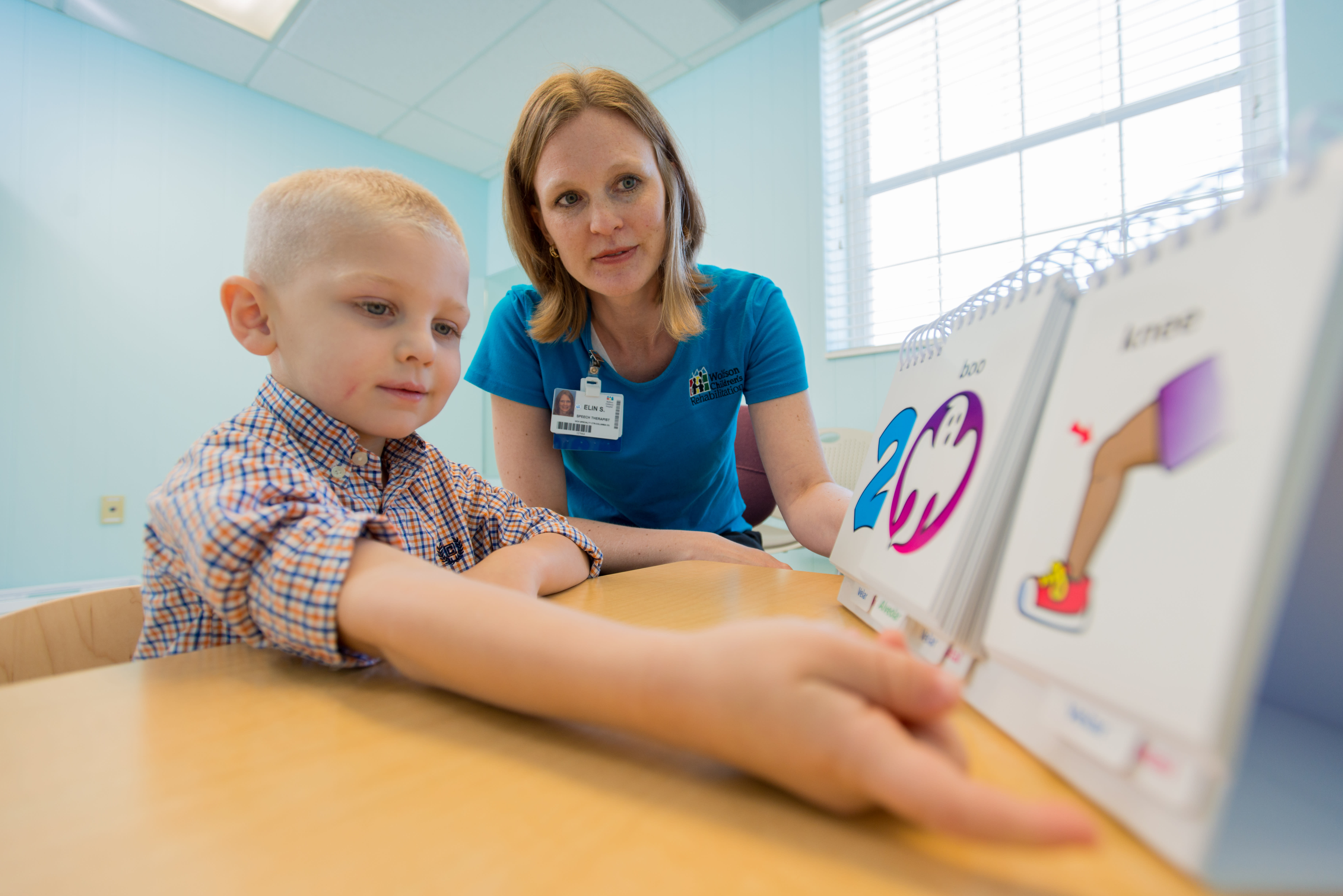How a Speech Pathologist Can Facilitate Stroke Recovery and Rehabilitation
How a Speech Pathologist Can Facilitate Stroke Recovery and Rehabilitation
Blog Article
Exactly How a Speech Pathologist Can Assist Improve Interaction Skills
Reliable communication is a cornerstone of individual and expert success, yet several people encounter challenges that impede their ability to reveal themselves plainly. A speech pathologist is outfitted to deal with these obstacles with targeted analysis and treatment techniques customized per individual's needs. By employing evidence-based restorative methods, they not only work to enhance speech and language problems yet additionally improve general communicative competence. Recognizing the complex duty of a speech pathologist discloses just how their expertise can change lives, inviting a more detailed assessment of the details approaches and end results connected with their method.
Understanding Interaction Disorders
Recognizing communication conditions is necessary for recognizing exactly how they influence people' ability to share themselves and involve with others. Communication problems encompass a vast array of troubles that influence speech, language, and social communication, frequently impeding effective interaction. These conditions can emerge from different variables, including neurological conditions, developing hold-ups, physical problems, or emotional issues.
Speech conditions may manifest as problems in expression, fluency, or voice production, impacting just how words are pronounced or talked. Language problems, on the other hand, entail challenges in understanding or using language, which can hinder both spoken and non-verbal interaction. Social communication problems are defined by difficulties in the practical elements of communication, such as taking kip down discussion or understanding social hints.
The repercussions of interaction conditions are extensive, influencing not only the individual's capability to share emotions and thoughts but also their social partnerships, academic chances, and overall lifestyle. Awareness of these conditions can promote empathy and assistance, urging efficient methods for communication and involvement. Recognizing the complexities of interaction problems is a crucial action towards promoting inclusivity and addressing the requirements of those impacted.
Role of a Speech Pathologist
Speech pathologists often play an essential function in dealing with and detecting communication disorders, utilizing a series of evidence-based strategies tailored to each individual's requirements. These experts deal with individuals across the life expectancy, from kids with speech hold-ups to adults recovering from strokes or terrible brain injuries. Their experience encompasses a variety of communication problems, consisting of expression, language, fluency, and voice conditions.
In healing settings, speech pathologists make use of structured treatments designed to improve interaction skills. They might apply methods such as speech workouts, language games, and social interaction training to help with improvements in receptive and meaningful language abilities. Speech Pathologist. Furthermore, they inform customers and their households concerning effective interaction techniques and adaptive approaches to navigate day-to-day interactions
Beyond direct therapy, speech pathologists collaborate with various other healthcare specialists, teachers, and caregivers to ensure a detailed method to treatment. They support for customers by providing sources and support, enabling individuals to attain their interaction objectives and boost their general lifestyle. As experts in the field, speech pathologists are crucial in promoting efficient communication, advertising independence, and boosting social participation for those with communication difficulties.
Assessment and Medical Diagnosis Refine
The assessment and diagnosis procedure carried out by speech pathologists commonly includes a thorough assessment to identify interaction disorders accurately. This process begins with a detailed instance history, where the clinician gathers significant details regarding the person's medical, academic, and developmental background. Understanding the context of the person's communication troubles is necessary for an exact diagnosis.
Complying with the medical history, speech pathologists make use of informal assessments and standardized tests to review numerous aspects of communication, find out consisting of speech sound manufacturing, language comprehension, expressive language, and social communication skills. These analyses are customized to the person's age and particular problems, giving important information for evaluation.
Observation is additionally a critical element of the analysis process, as it enables the medical professional to see direct exactly how the specific connects in all-natural settings. Additionally, interviews with household members and teachers can provide understanding into the person's interaction obstacles across various settings.
When the evaluation is total, the speech pathologist synthesizes the searchings for to establish a medical diagnosis and advise appropriate treatments. This comprehensive assessment procedure ensures that individuals receive targeted assistance customized to their distinct communication demands, laying the foundation for efficient therapeutic techniques.
Therapeutic Strategies and Approaches
Numerous therapeutic techniques and techniques are employed by speech pathologists to deal with a range of interaction disorders properly. One commonly used technique look at here now is expression therapy, which concentrates on correcting speech sounds via rep and aesthetic signs. This method is especially advantageous for individuals with speech sound problems.
One more efficient method is language treatment, which boosts both expressive and responsive language abilities. This may entail interactive tasks that advertise vocabulary advancement, syntax understanding, and conversational abilities. In addition, speech pathologists usually use social abilities training to boost practical language abilities, making it possible for individuals to browse social interactions a lot more effectively.
Fluency shaping and stuttering alteration techniques are specifically made to assist those experiencing fluency conditions. These strategies assist clients establish smoother speech patterns and handle the emotional and physical parts of stuttering.
Furthermore, alternate and augmentative interaction (AAC) systems are used for individuals with severe interaction problems. These systems, which can consist of motions, signs, or digital tools, give important support for effective communication.
Benefits of Speech Treatment

Additionally, speech therapy can assist in creating essential listening and understanding skills, fostering better communication in conversations. Individuals with cognitive-communication disorders can also benefit, as therapy focuses on enhancing memory and analytic capacities, crucial for effective communication.
Another vital facet is the emotional support given throughout therapy sessions. Speech pathologists develop a safe setting, motivating clients to get rid of anxiety and irritation relevant to their communication problems. This assistance can lead to boosted self-esteem and general mental wellness.
Moreover, very early intervention via speech treatment can stop further difficulties, ensuring that individuals reach their complete communicative potential. On the whole, the advantages of speech treatment expand beyond simple speech renovation, positively impacting different measurements of life for those affected by communication problems.
Final Thought
In summary, speech pathologists play a vital function in dealing with communication problems via evaluation, diagnosis, and tailored healing treatments. By using evidence-based methods, these experts boost people' speech and language capabilities, fostering improved clarity, fluency, and social communication skills. The advantages of early intervention underscore the relevance of looking for aid from speech pathologists, as their expertise can dramatically enhance communicative capacity, ultimately leading to higher success in both specialist and individual spheres.

Speech pathologists often image source play an essential role in identifying and treating communication conditions, using an array of evidence-based techniques customized to each individual's demands. As professionals in the field, speech pathologists are essential in fostering efficient interaction, promoting self-reliance, and enhancing social involvement for those with communication obstacles.

Report this page